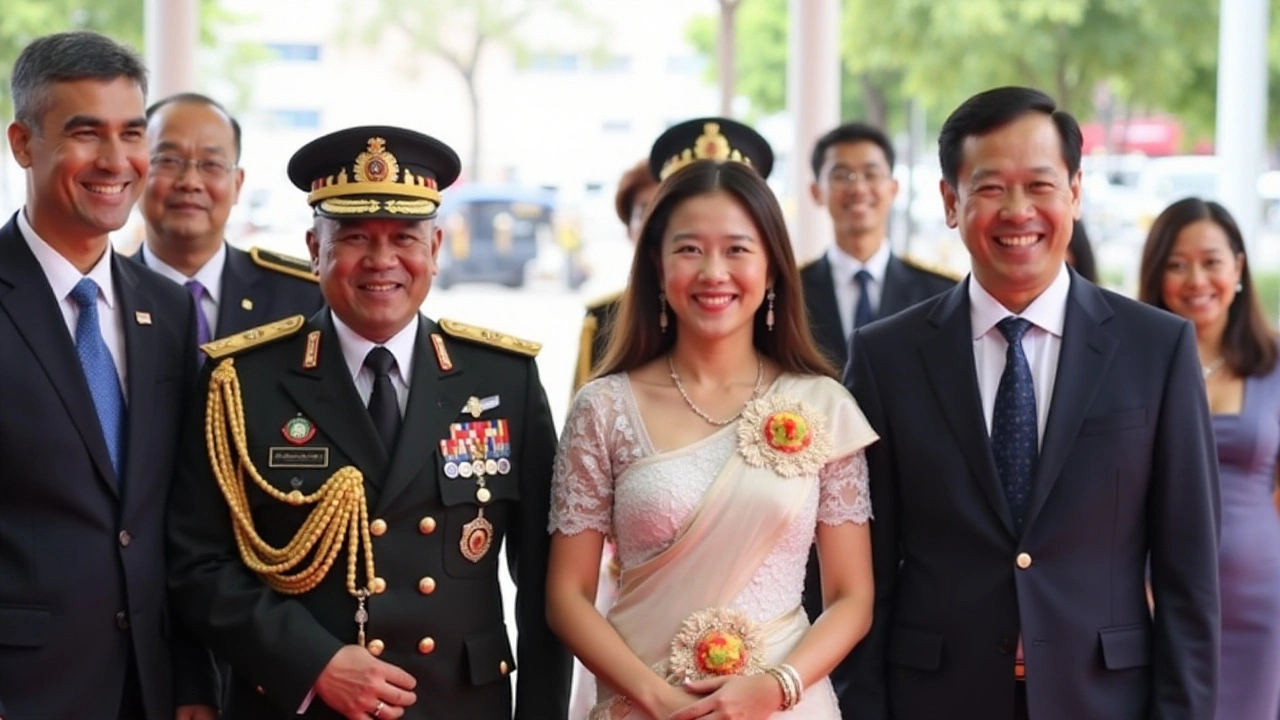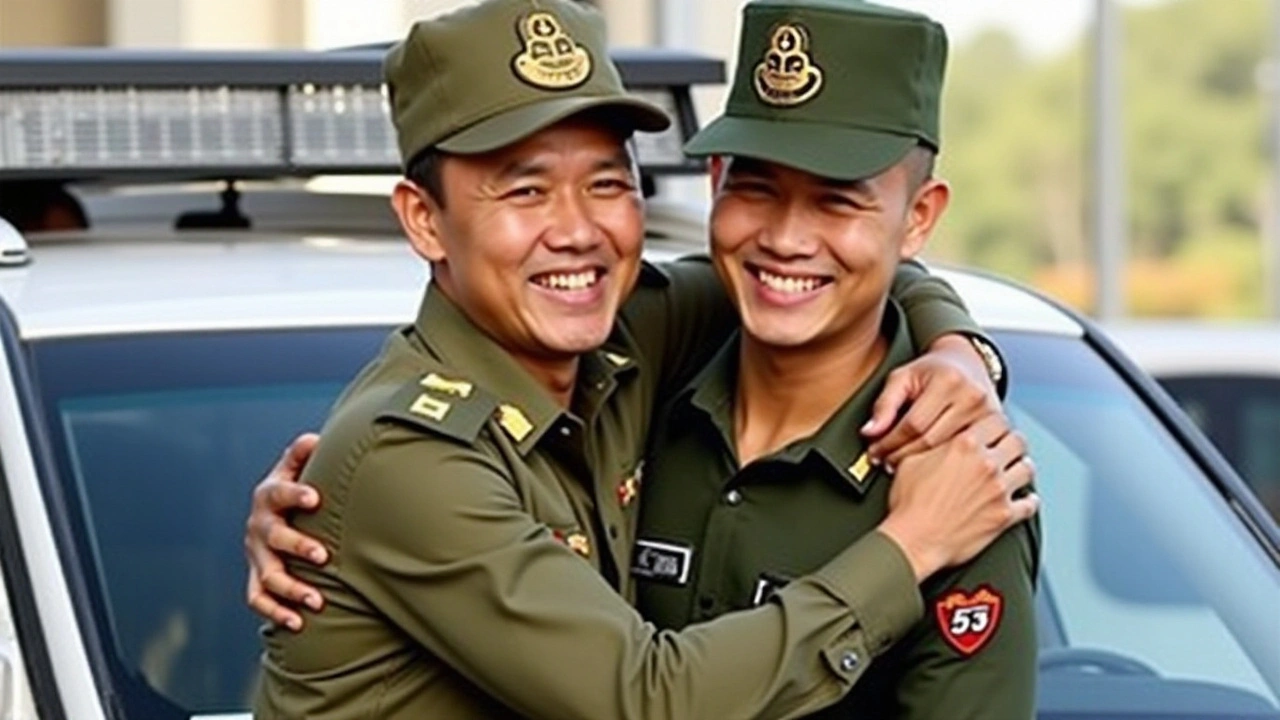The Youngest Ever PM of Thailand Takes Office
Paetongtarn Shinawatra, at 37 years old, has become Thailand’s youngest-ever prime minister following a tumultuous series of political events. Her rise to power comes as part of a complex political arrangement brokered by her influential father, former Prime Minister Thaksin Shinawatra. This development has significant implications for both Thailand's domestic politics and its international relationships.
The election of Paetongtarn, just over a year after her Pheu Thai party came second in the general elections, followed the controversial ousting of Srettha Thavisin. Thavisin’s removal by the constitutional court for alleged ethical breaches sparked a crisis that necessitated swift political maneuvering. Despite the progressive Move Forward Party (MFP) claiming the highest number of parliamentary seats, Thaksin orchestrated a coalition deal that facilitated Paetongtarn’s ascent.
A Political Dynasty's Influence
Thaksin Shinawatra, who served as Prime Minister from 2001 to 2006, is a polarizing figure in Thai politics. His return to the political fray through his daughter has intensified discussions about the role of political dynasties. Describing herself as a compassionate capitalist and social liberal, Paetongtarn’s political outlook seems aligned with her father’s populist policies. Yet, her distinct political identity remains inextricably linked to the Shinawatra legacy.
Thaksin’s tenure was marked by ambitious policies aimed at reducing poverty and improving healthcare, but also by allegations of corruption and cronyism. His criticism of Thailand’s entrenched elites—business magnates, bureaucrats, and military leaders—has earned him both staunch allies and fierce adversaries. Paetongtarn’s challenge will be to carve out her own political identity while leveraging her father’s extensive network and experience.

Economic Challenges Ahead
Paetongtarn’s tenure begins amid significant economic challenges. Following the 2014 military coup, Thailand’s economy has experienced sluggish growth compared to its regional neighbors. While Southeast Asia has averaged around 5% growth, Thailand’s growth has hovered between 1% and 4%. The country’s reliance on cheap labor and infrastructure-heavy investments is no longer sufficient to drive economic expansion amid increasing competition from nations like Vietnam.
The new prime minister must navigate these economic headwinds while addressing the high public debt and implementing reforms to invigorate the industrial base. Significant emphasis will need to be placed on innovation and upgrading Thailand’s workforce skills to remain competitive in the global market. Overlooking these economic imperatives could provoke public discontent and pose a risk to her political stability.
Thailand's Political Landscape
Thailand's political scene is replete with complexities. The frequent military coups—19 since becoming a constitutional monarchy in 1932—highlight the turbulent nature of Thai democracy. The intertwining of the military and monarchy as two powerful pillars of the Thai state adds another layer of intricacy to governance. Paetongtarn’s father’s critical stance towards these institutions continues to resonate, setting the stage for potential friction.
The Move Forward Party (MFP), now reconstituted as the People’s Party following the banning of its executive members from politics, remains a significant force. Pita Limjaroenrat, leading the rebranded party, has expressed concerns about Thailand being trapped in what he describes as a “double lock democracy,” where legal systems and military influence persistently undermine electoral outcomes. This narrative underscores the fragile state of democratic processes in the country.

International Reactions
Internationally, Paetongtarn’s election has drawn attention and responses from global leaders. Indian Prime Minister Narendra Modi was quick to extend his congratulations, indicating the importance of Thailand’s leadership transition on the global stage. As Thailand is a significant player in Southeast Asia, the stability and policies of its government have regional repercussions.
Monitored closely by its neighbors and international allies, Thailand’s political shifts will influence regional cooperation and economic partnerships. Paetongtarn’s ability to maintain a balanced relationship with both Eastern and Western allies will be critical in navigating trade agreements, security collaborations, and diplomatic engagements.
A New Chapter in Thai Politics
Paetongtarn’s relatively recent entry into politics—just three years ago—coupled with her prior experience managing her family’s hotel business, leaves her with limited political track record. Critics and supporters alike are watching closely to see how she will handle the pressures and responsibilities of leading a nation. While her education in the United Kingdom has provided her with a global perspective, on-ground political maneuvering in Thailand requires astute understanding of local dynamics and entrenched power structures.
Her term as prime minister will likely be seen as a litmus test for the Shinawatra family’s enduring influence and the ability of young, relatively inexperienced leaders to bring about meaningful change in Thailand's polity. Ensuring her political survival against the backdrop of the country’s history of coups and legal confrontations will demand a nuanced approach and possibly innovative governance strategies.

The Road Ahead
The road ahead for Paetongtarn Shinawatra is fraught with both opportunities and challenges. Her leadership will be crucial in navigating Thailand through economic reforms, reconciling political divides, and strengthening democratic institutions. While her father’s shadow looms large, she has a chance to establish her own legacy and redefine the political landscape in Thailand.
Observers and analysts await to see whether Paetongtarn’s compassionate capitalist ideals and socially liberal views will translate into effective policies and governance that can uplift the nation and its people. As Thailand steps into this new chapter, the young prime minister’s decisions and actions will be under intense scrutiny both domestically and internationally.

